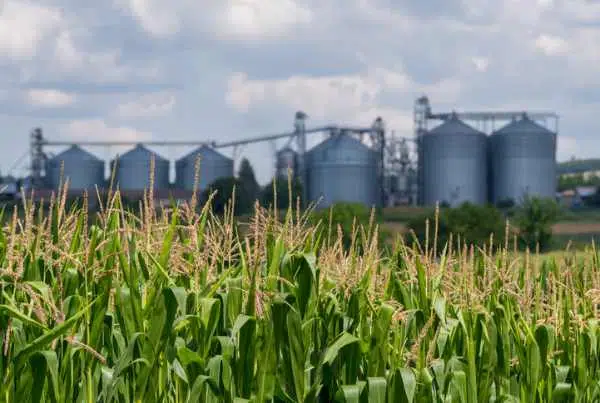This is a reprint from July 7, 2022. The question of ethanol is in the news again and this article seems timely.
The Biden administration on Friday set new requirements that increase the amount of ethanol that must be blended into the nation’s gasoline supply from 10% to 15%. It will lead to higher costs, it’s mostly undoable, and it hurts the environment.

The Environmental Protection Agency (EPA) said it would set the 2022 levels for corn-based ethanol blended into gasoline at 15 billion gallons, according to the AP.
The fuel consumes more than 40% of the nation’s corn supply, and ethanol and other biofuel production plants offer jobs in rural areas that have seen steady population declines over the decades.
Chet Thompson, CEO of The American Fuel & Petrochemical Manufacturers group, which represents refineries, called the 2022 figure “bewildering and contrary to the administration’s claims to be doing everything in their power to provide relief to consumers.” The group said unachievable mandates will increase fuel production costs and keep consumer prices high.
IT HELPS NOTHING AND DAMAGES THE ENVIRONMENT
Allegedly, ethanol is cheaper and this is to help with the gasoline costs. But that’s not true. EPA analysts say the decision is expected to increase consumer gas prices by less than 1 cent a gallon, the Wall Street Journal reports. But it will help win accolades from farmers in Iowa and the Midwest.
“On the campaign trail, Mr. Biden said a strong biofuel mandate would help struggling rural economies where people find work at the country’s roughly 200 biorefineries,” according to the WSJ.
Biden said he supports this to help farmers, consumers and the environment. But, recent federal research suggests it raises consumer prices and damages habitat and the climate.
“Millions of acres are being pointlessly sacrificed just to grow corn to fuel gas-guzzling SUVs,” said Brett Hartl, government affairs director at the Center for Biological Diversity.
“Expanded ethanol production under federal mandates raised corn prices by 30% and the prices of other crops by 20%, according to a report published earlier this year in the National Academy of Sciences. The report also said growing more corn for ethanol led to increased amounts of water pollutants from U.S. farms and negated ethanol’s climate benefits,” reports the WSJ.
ETHANOL IS CHEAPER 5% OF THE TIME
“The price per gallon of ethanol is not better than the price of gasoline except by volume. Ethanol contains about 30% less energy than gasoline and the price per gallon is thus misleading. Adjusting for this yields the figure below, which shows that ethanol in gasoline equivalent gallons is rarely cheaper than gasoline – typically 5% of the time. Ethanol advocates describing it as cheaper than gasoline, as so many do, are usually overlooking this inconvenient truth,” Michael Lynch writes at Forbes.
THE PROBLEMS WITH THE RESET OF OUR ENERGY
So, what is the Biden administration doing? The USDA will give $700 million tax dollars to support 195 biofuel producers in 25 states that faced unexpected market losses due to the COVID-19 pandemic, the AP reports.
The funds come from pandemic relief (Coronavirus Aid, Relief, and Economic Security Act).
In other words, instead of pumping more oil and gas, the Bidenistas are resorting to social engineering our energy future. They are manipulating our energy no matter the cost. Why?
Now we will need more biofuel when the cost of farming is rising 4 to 5 times. We have severe shortages of fertilizer, potash, and other necessary products that is sending the costs skyrocketing. We will begin to really see what this means at the end of August or in September.
This new requirement for more corn will put increase demand despite scarcity, causing more inflation. We don’t have enough corn. How will this affect food?
Cars, motorcycles, boats are not built or warrantied for more ethanol. It will kill the engines. Maybe that’s the plan.
Another issue, noted by The Conservative Treehouse, is the RIN credits. The EPA enforces the biofuel standard by requiring refineries to submit purchase credits (known as Renewable Identification Numbers, or RINs) to the Environmental Protection Agency (EPA) proving the purchases, TCH says. Smaller refineries buy their RIN credits from large refineries. Two things could result from this. The RIN credits will increase for one. For another, it would be a great way to eventually force smaller refineries out of business.
If you aren’t sure that any of this is true, fall on your common sense. You’ll bet the same answer.




Just when I thought this regime couldn’t piss me off even more . .
Downsides of Ethanol as fuel↓ ❀ Incentivize farmers to take marginal land into corn production increasing erosion damage ❀ Mandatory ethanol production and use drives food and feed prices through the roof ❀ Harms lawnmowers and other small engines ❀ Car Manufacturers refuse to warranty against 20% ethanol fuel damage (some @15%) other than E85 certified vehicles ❀ Increased pesticide… Read more »
You forgot the formaldehyde produced by burning alcohol in an internal combustion engine.
So much to know; so little time.
And they do not have to use GMO corn to manufacture ethanol neither. There are many ways to manufacture ethanol that do not involve destroying the natural world. Pure stupidity on display.
Ethanol just raises the cost of food and damages older vehicles and the climate.
Here is a little more on what Ethanol does to vehicles…….Ethanol can damage many parts of your car at concentrations above 10%. Ethanol can destroy gas tanks, fuel pumps, gaskets, and attract moisture into your fuel. Engines can be completely ruined over time if they’re not designed for ethanol (flex fuel vehicles)…….yeah thats a little tidbit the GREENIES and Biden… Read more »